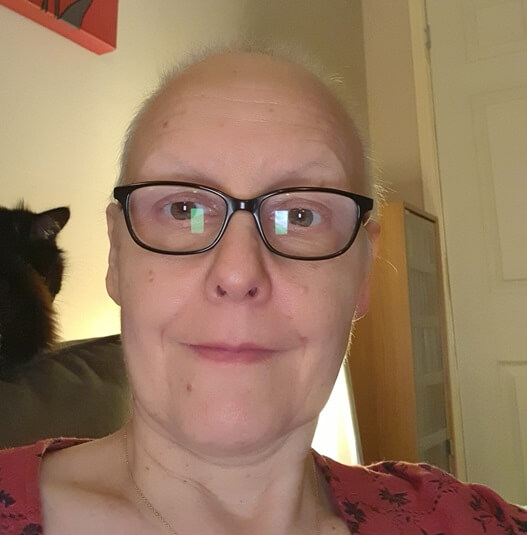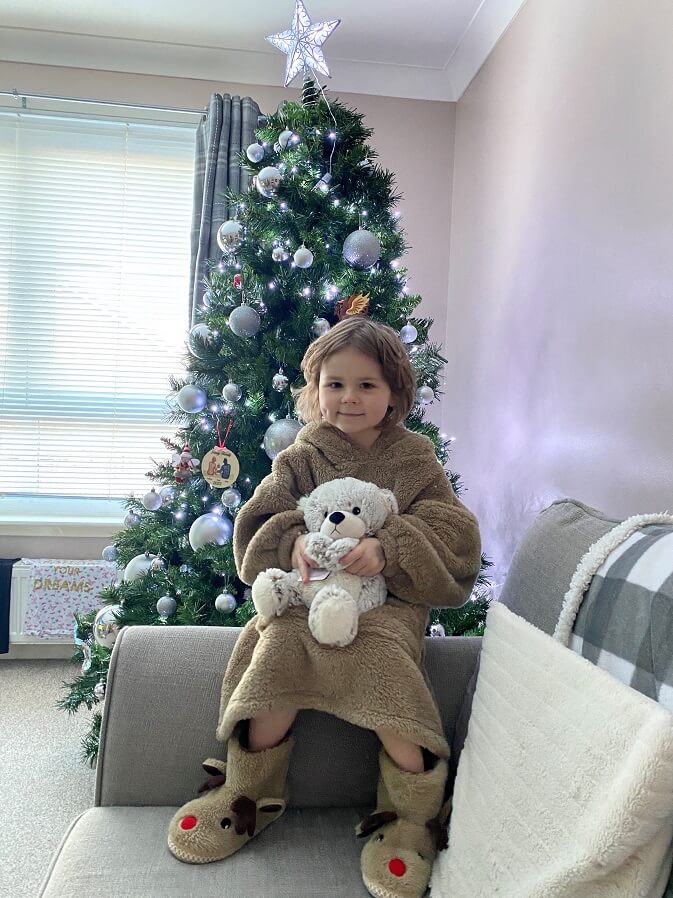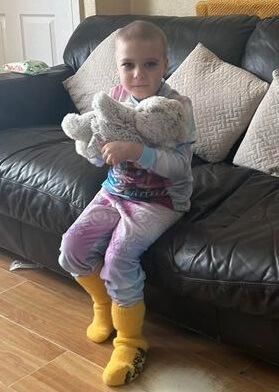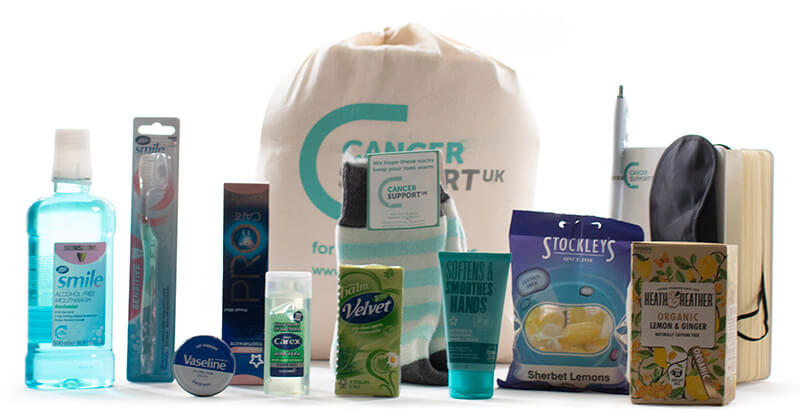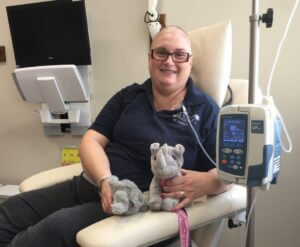
Imelda, 50, was diagnosed with stage 3 breast cancer at the age of 48. Her diagnosis came as a huge shock as she hadn’t had any symptoms and wasn’t expecting to receive the news that she had cancer.
“I didn’t even bother to take my husband to my appointment as I thought there was nothing wrong. I got a shock when I was told that I had breast cancer, and was all on my own.”
Following her diagnosis, Imelda has had surgery, chemotherapy and radiotherapy alongside some additional treatments. She’s still undergoing treatment, but feels positive about what’s to come.
Before Imelda started chemotherapy, she found out about Cancer Support UK’s Cancer Kits, and sent away for a Chemo Kit to help her during treatment. It arrived quickly and became an essential part of her chemotherapy support routine. Imelda said:
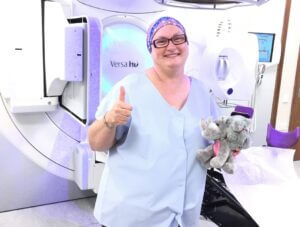 “It was filled with lots of useful things that really made a difference. It can be quite isolating when you’re diagnosed because suddenly it feels like it’s just you, but knowing there was support out there really helped and made me feel that somebody cared.”
“It was filled with lots of useful things that really made a difference. It can be quite isolating when you’re diagnosed because suddenly it feels like it’s just you, but knowing there was support out there really helped and made me feel that somebody cared.”
Our Chemo Kits are designed specifically to help people undergoing chemotherapy. They contain items to offset some of the unpleasant side effects of treatment, like cold hands and feet, nausea and sensitive teeth. They’re supplied free of charge and can be ordered for yourself, or on behalf of a friend.
Chemo Kits are for those undergoing chemotherapy. The kits contain items like toasty socks, sensitive toothpaste, notebooks, hand cream, sleep masks and ginger tea to combat the side effects of chemotherapy.
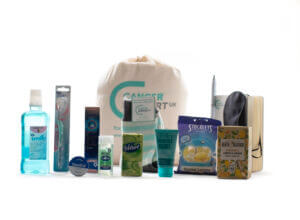 Cancer Kits are designed to help adults who are not receiving chemotherapy but are undergoing another form of cancer treatment. They contain items like puzzle books to relieve boredom, relaxing pillow spray to aid sleep, and toiletries to use on the go.
Cancer Kits are designed to help adults who are not receiving chemotherapy but are undergoing another form of cancer treatment. They contain items like puzzle books to relieve boredom, relaxing pillow spray to aid sleep, and toiletries to use on the go.
Imelda’s advice for anyone following their cancer diagnosis and during treatment is to get out there and seek out a supportive community. She said:
“I really recommend you don’t sit on your own, don’t feel isolated and lonely. See which groups are out there and get chatting to people who are, or have been in a similar situation to yourself.”
If you’re experiencing isolation or loneliness post-cancer treatment, please do consider joining one of our Cancer Coach support groups.
Please order a Cancer Kit for yourself, or for someone you know who is going through cancer treatment at the moment.
